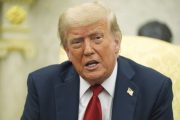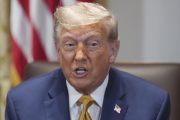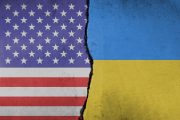In the immediate aftermath of the April 15 Boston Marathon bombing, various “experts,” led principally by spokesmen for the Council on Foreign Relations (CFR), began sounding the theme that this latest terror attack is proof of the need for more cooperation and convergence between U.S. and Russian intelligence agencies.
James M. Lindsay, the CFR’s senior vice president and director of studies, and Anya Schmemann, director of the CFR’s Task Force Program, were among the first out of the starting blocks with an April 19 “Waters’ Edge” CFR blog that posited: “The reported identification of the Boston bombers as Chechens may spur increased U.S. support for Moscow’s approach to Islamic extremism. Russia has already offered its assistance in the ongoing investigation, and the Boston bombings will likely lead to increased counterterrorism cooperation between the two countries.”
The following day, April 20, many newspapers and websites carried a Reuters story by Timothy Heritage with the title, “Boston bombings – a chance for U.S.-Russia cooperation.” The Reuters story begins:
Russian President Vladimir Putin may have been tempted to tell Barack Obama “I told you so” when U.S. officials blamed two ethnic Chechens for the Boston Marathon bombings. He has long said the United States underestimates the security threat posed by Islamist militants in Russia’s volatile North Caucasus, and has rejected criticism that Moscow’s use of force in the region has been heavy-handed.
The Reuters story quoted Robert Legvold, a CFR member and regular writer for the CFR journal Foreign Affairs, on the likely “positive” effect the bombing would have on U.S.-Russian relations. Reuters reported:
Robert Legvold, professor emeritus at Columbia University and a Russia expert, said the events in Boston would help increase U.S.-Russian cooperation because the sides would share intelligence and information about the suspects.
He underlined that Russia had been quick to rally behind Washington after the attacks on the United States on September 11, 2001, and a similar deepening of security cooperation could take place now.
“I think in the end, the Russians under Putin want to keep the relationship as constructive as possible,” Legvold said. “This episode is likely to be more positive than negative (for U.S.-Russian relations).”
“Now that we ourselves have experienced terror that has a North Caucasus dimension, it certainly gives a chance to revive counterterrorism cooperation,” Angela Stent (CFR), director of the Center for Eurasian, Russian, and East European Studies at Georgetown University, told RIA Novosti, one of the venerable old Kremlin propaganda organs, that continues to serve Putin’s FSB, as it did the Soviet KGB.
“Putin has been making the point for 14 years that Chechnya affects all of us,” said Fiona Hill in an Associated Press story on April 23. Hill, formerly the White House’s national intelligence officer for Russia under Obama and President George W. Bush, is a CFR member. None of these experts has pointed out that many of the Chechen terror incidents in Russia have been exposed as false flag operations carried out by the Russian FSB.




